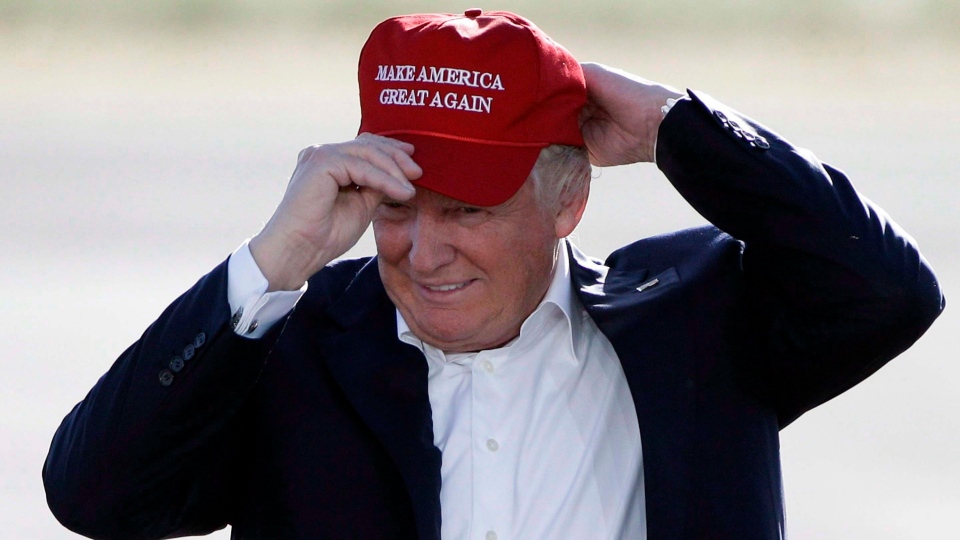The Kavanaugh nomination to the Supreme Court, along with the negative reaction thereto by virtually all persons who call themselves liberals, demonstrates how badly divided the American people are at the moment. I myself think it’s the worst division since the Civil War.
Will it lead to a second Civil War? If the tremendous division is not soon overcome, I expect it will lead to a certain amount of violence, to something resembling guerilla warfare, and to a number of notable assassinations. But not full-scale warfare. The police and military resources of the federal government are too great today to allow that to happen – immeasurably greater than they were when Lincoln began his presidency in March of 1861.
If we say, for want of a better terminology, that this is a “culture war” between leftists and rightists, is there any chance that we can come to a mutual understanding despite our differences and learn to live in peace and friendship with one another? Or is this a struggle that will have to be carried on to the bitter end, until one side triumphs and the other is crushed? Or is it a struggle that will go on indefinitely, lasting perhaps for centuries?
This last is a real possibility. In France, a great struggle between right (Catholics) and left (anti-Catholic secularists) persisted for nearly two centuries, from Voltaire to Jean-Paul Sartre. It is only in the last generation or two that it has become clear that secularism has won this “war” and that Catholicism can no longer hope to be anything more than a minority persuasion in France.
If France nonetheless remained a more or less united country all this time, it’s because the vast majority of Frenchmen, whether Catholic or anti-Catholic, were patriots. Love of country was usually (but not always) stronger than hatred of one another.
Can patriotism save American unity? I have my doubts. For many on the left have rather a bad opinion of patriotism, which they hold to be no more than another name for nationalism. And they believe that American nationalism is an attitude that involves contempt for that section of the human race that is not American; in other words, it implies xenophobia, Islamophobia, and racism.
Not the least of the many reasons liberals hate President Trump is his very frank appeal to American nationalism. In doing that, liberals hold, he is stirring up the worst instincts of the American people. His “Make American Great Again” baseball caps, they believe, are incitements to hatred.
Further, in the USA patriotism has always had a strongly religious tinge; even a Christian tinge. And, of course, many of those on the left, especially opinion leaders, are decidedly anti-Christian. In France, anti-Catholics were able to construct a secularist form of patriotism. In the USA, leftists have not yet been able to do something similar. So they suspect “patriotism” of being a dirty word. (The p-word.)

A great weakness on the conservative side is that the Catholic Church in the USA, which in the normal course of events would be a bulwark of conservative cultural values, is in a moral crisis. As a result, the Church has little moral authority in the eyes of non-Catholics. Indeed, it has little moral authority in the eyes of many Catholics. And those Catholics for whom the Church still does have great authority have to a considerable extent lost their confidence. They think they have to reform the Church (God knows how) before they attempt to reform America.
Another great weakness on the conservative side is that the conservative cultural cause is now largely in the hands of one man, President Donald Trump, who happens to be the most hated man in America. He is also the most loved man in America. And there’s the problem.
As Trump goes, so goes American conservatism – at least for the foreseeable future. If liberals can destroy Trump, they will have given American conservatism a tremendous setback. Hence, their nearly fanatic determination to show that Trump is on leash held by Putin, or that he has been obstructing justice ever since he entered the White House, or that he’s insane and needs to be removed from office.
On the other hand, if Trump gets a clean bill of health from Robert Mueller, if he gets Kavanaugh on the Supreme Court, if he prevails in the upcoming Congressional elections – any of these things will be a great setback for the liberal cause. No wonder they are fighting against Trump with so much fury.
And no wonder conservatives are fighting for him with an equal fury. It’s not a matter of Trump the man. It’s a matter of the future of America: will the USA be a country dominated by a conservative worldview or a liberal worldview?
Now you may object, “But Trump isn’t a true conservative. William F. Buckley Jr. was a true conservative. Or Russell Kirk. Or Whittaker Chambers. Or Pope John Paul II. Or Edmund Burke. Or Aristotle. Or Bach.” It doesn’t matter. For the foreseeable future at least, American conservatism is in the hands of Donald Trump.
A great weakness on the liberal side is that many of their backers support the liberal agenda, not because these backers are themselves true liberals, but because they are habitual Democrats, and at the moment liberals and liberalism happen to control the Democratic Party.
I’m thinking of blue-collar workers and African-Americans, many of whom, though supporting the liberal agenda, are temperamentally conservative. It remains to be seen if these people, sensing a conflict between their conservative feelings and the liberal-Democratic agenda, will drift in a conservative direction. This drift is already taking place among workers; if it had not, Trump would not be president. Will it next happen among blacks? Could be.
All this is terrible. I console myself with the thought that the assassinations have not yet begun. Only character assassinations (witness Brett Kavanaugh). God help us.















